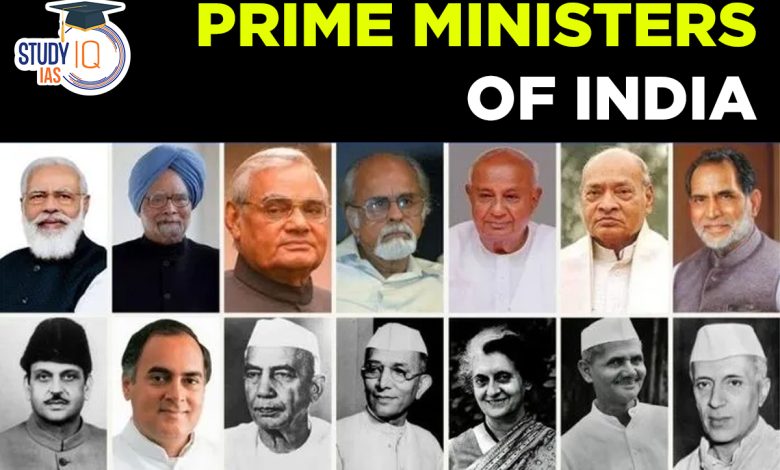From Nehru to Modi: A Historical Overview of All Prime Ministers of India

India, the world’s largest democracy, has witnessed the leadership of several prime ministers since its independence in 1947. These individuals have played pivotal roles in shaping the country’s political landscape and significantly contributing to its development.
Listed below are all prime minister of india, highlighting their key achievements, challenges, and legacies:
- Jawaharlal Nehru (1947-1964)
Jawaharlal Nehru, often referred to as the architect of modern India, served as the country’s first prime minister among all prime minister of india. He played a critical role in the freedom struggle against British colonial rule and was deeply committed to secularism and democracy. Nehru’s tenure saw the adoption of the Indian Constitution.
- Lal Bahadur Shastri (1964-1966)
Lal Bahadur Shastri succeeded Nehru as the second prime minister of India. Shastri is best remembered for his leadership during the Indo-Pak War of 1965. Shastri’s slogan “Jai Jawan, Jai Kisan” (Hail the Soldier, Hail the Farmer) highlighted his commitment to national security and agricultural development.
- Indira Gandhi (1966-1977, 1980-1984)
Indira Gandhi, daughter of Jawaharlal Nehru, became India’s first female prime minister and the third overall. Gandhi was also assassinated in 1984, leaving a lasting impact on the nation.
- Morarji Desai (1977-1979)
Morarji Desai, the fourth prime minister of India, was known for his austere lifestyle and commitment to integrity in public life. He played a crucial role in restoring democracy after the emergency and focused on social and economic reforms.
- Charan Singh (1979-1980)
Charan Singh served as the fifth prime minister of India among all prime minister of india for a brief period. He focused on agricultural reforms and aimed to alleviate rural poverty. Singh’s tenure was marked by political instability and frequent realignments of political alliances.
- Rajiv Gandhi (1984-1989)
Rajiv Gandhi, the son of Indira Gandhi, assumed the office of prime minister after his mother’s assassination. He emphasised technological advancements and played a pivotal role in computerising various government processes.
- P. Singh (1989-1990)
V.P. Singh, the eighth prime minister of India, came to power on the back of a social justice movement. He implemented the Mandal Commission recommendations, which aimed at providing reservations for Other Backward Classes (OBCs) in government jobs.
- Chandra Shekhar (1990-1991)
Chandra Shekhar served as the ninth prime minister of India for a brief period. He focused on economic reforms and initiated measures to liberalise the Indian economy.
- V. Narasimha Rao (1991-1996)
P.V. Narasimha Rao, often credited with initiating economic reforms, became the tenth prime minister of India. Despite facing challenges such as the Babri Masjid demolition and economic crises, Rao’s reforms laid the foundation for India’s rapid economic growth in the subsequent years.
- Atal Bihari Vajpayee (1996, 1998-2004)
Atal Bihari Vajpayee, the eleventh prime minister of India, served in three non-consecutive terms. His public speaking abilities and efforts to improve India’s infrastructure. Vajpayee’s government successfully conducted nuclear tests in Pokhran, establishing India as a nuclear power.
- Manmohan Singh (2004-2014)
Manmohan Singh, an economist and technocrat, served as the thirteenth prime minister of India. Singh’s government focused on inclusive growth and social welfare programs such as Mahatma Gandhi National Rural Employment Guarantee Act (MGNREGA).
- Narendra Modi (2014-present)
Narendra Modi, India’s fourteenth and current prime minister, assumed office with a promise of economic development and good governance. His tenure has witnessed several landmark initiatives, including Goods and Services Tax (GST) implementation, the Make in India campaign, and the Swachh Bharat Abhiyan (Clean India Mission).
Conclusion
This article has covered almost All prime minister of India who have played an important role in shaping the nation’s history and development. They have faced challenges and undertaken initiatives to drive economic growth, social welfare, and diplomatic relations. While each prime minister has unique strengths and weaknesses, their combined efforts have propelled India forward on its path to progress and transformation.



